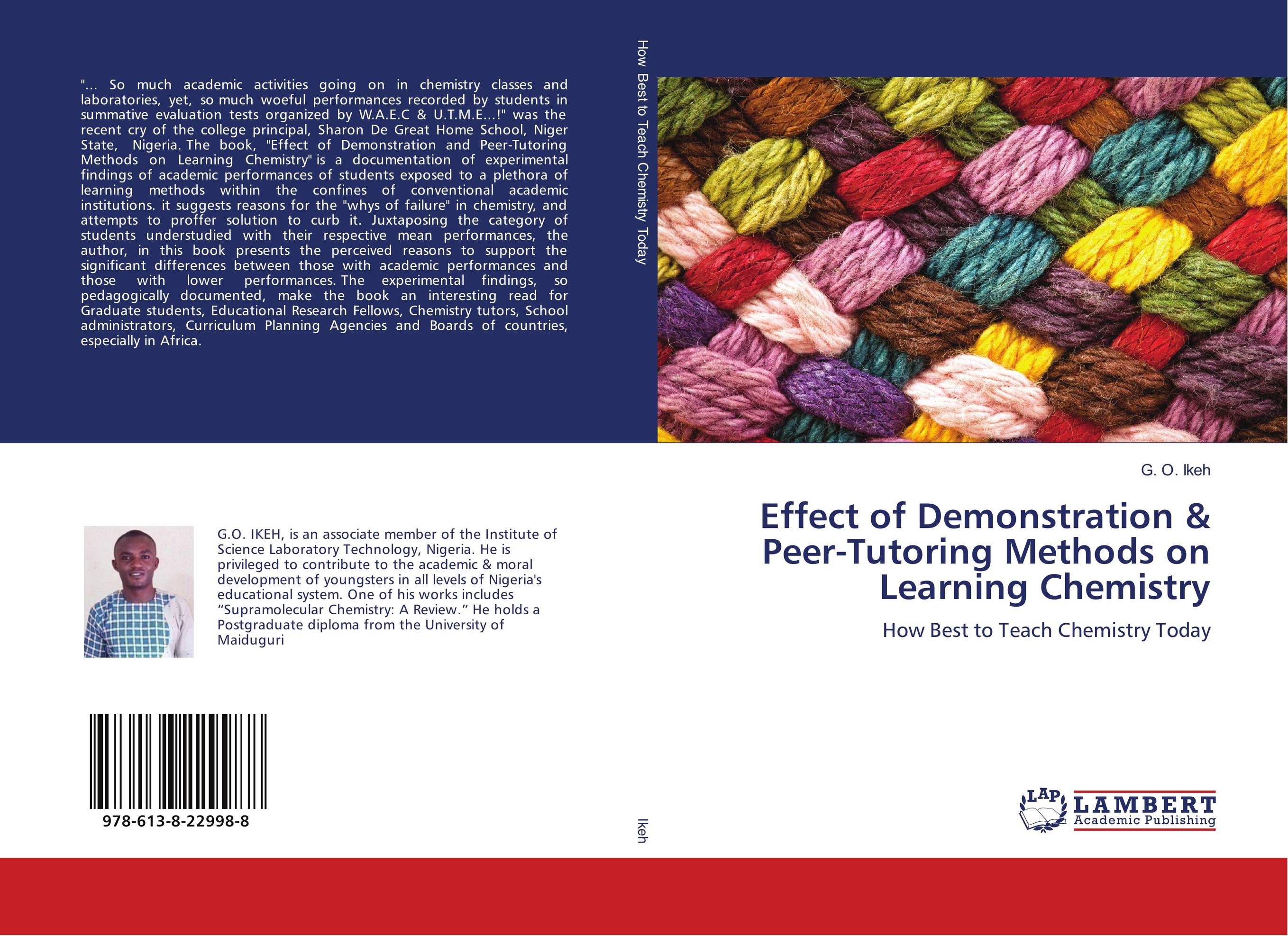| Поиск по каталогу |
|
(строгое соответствие)
|
- Профессиональная
- Научно-популярная
- Художественная
- Публицистика
- Детская
- Искусство
- Хобби, семья, дом
- Спорт
- Путеводители
- Блокноты, тетради, открытки
Effect of Demonstration & Peer-Tutoring Methods on Learning Chemistry. How Best to Teach Chemistry Today

В наличии
| Местонахождение: Алматы | Состояние экземпляра: новый |

Бумажная
версия
версия
Автор: G. O. Ikeh
ISBN: 9786138229988
Год издания: 2018
Формат книги: 60×90/16 (145×215 мм)
Количество страниц: 108
Издательство: LAP LAMBERT Academic Publishing
Цена: 29753 тг
Положить в корзину
Позиции в рубрикаторе
Сферы деятельности:Код товара: 206895
| Способы доставки в город Алматы * комплектация (срок до отгрузки) не более 2 рабочих дней |
| Самовывоз из города Алматы (пункты самовывоза партнёра CDEK) |
| Курьерская доставка CDEK из города Москва |
| Доставка Почтой России из города Москва |
Аннотация: "... So much academic activities going on in chemistry classes and laboratories, yet, so much woeful performances recorded by students in summative evaluation tests organized by W.A.E.C & U.T.M.E...!" was the recent cry of the college principal, Sharon De Great Home School, Niger State, Nigeria. The book, "Effect of Demonstration and Peer-Tutoring Methods on Learning Chemistry" is a documentation of experimental findings of academic performances of students exposed to a plethora of learning methods within the confines of conventional academic institutions. it suggests reasons for the "whys of failure" in chemistry, and attempts to proffer solution to curb it. Juxtaposing the category of students understudied with their respective mean performances, the author, in this book presents the perceived reasons to support the significant differences between those with academic performances and those with lower performances. The experimental findings, so pedagogically documented, make the book an interesting read for Graduate students, Educational Research Fellows, Chemistry tutors, School administrators, Curriculum Planning Agencies and Boards of countries, especially in Africa.
Ключевые слова: age, chemistry education, Demonstration Method, Learning Methods, lecture method, Sex, Teaching Methods, Peer-Insruction Method, Chemistry Self concept



